Reed College President’s Summer Fellowship
The President’s Summer Fellowship offers students a chance to think big and tackle a summer project that combines intellectual pursuit, imagination, adventure, personal transformation, and service to the greater good. The program was established in 2012 and is made possible with generous support from Dan Greenberg '62 and Susan Steinhauser.
President's Summer Fellowship Winners
Reed is proud to announce the winners of the President’s Summer Fellowship for 2022.
Clara Barclay ‘23
Environmental History “Meats” Tourism: Bison as Food and Sight-seeing Attractions in the American West
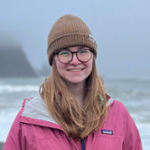 Prior to European colonization, bison herds flourished across North America, and bison served as vital resources in addition to holding deep cultural significance for many Native American peoples. When they arrived in the West, European settlers and their institutions drove bison nearly to extinction, harming the Indigenous peoples who relied on them through the process. Today, American bison have taken on roles as living tourist attractions, gourmet meals, and icons of conservation. What can these animals’ dual roles in the meat and tourism industries tell us about producers’ and consumers’ relationships with food, landscape, and the past? To answer these questions, I will visit sites where bison are raised commercially and viewable to tourists and sites where bison meat is sold and consumed. While there, I will speak with visitors and proprietors about how they view their relationships with the bison and what drove them to visit or work in the industry. Additional print and online sources, as well as oral histories which I will conduct via phone or video call, will add to my understanding of the histories and current conditions of the bison tourism and bison meat industries. An article for submission to an undergraduate history journal will serve as the culmination of my project.
Prior to European colonization, bison herds flourished across North America, and bison served as vital resources in addition to holding deep cultural significance for many Native American peoples. When they arrived in the West, European settlers and their institutions drove bison nearly to extinction, harming the Indigenous peoples who relied on them through the process. Today, American bison have taken on roles as living tourist attractions, gourmet meals, and icons of conservation. What can these animals’ dual roles in the meat and tourism industries tell us about producers’ and consumers’ relationships with food, landscape, and the past? To answer these questions, I will visit sites where bison are raised commercially and viewable to tourists and sites where bison meat is sold and consumed. While there, I will speak with visitors and proprietors about how they view their relationships with the bison and what drove them to visit or work in the industry. Additional print and online sources, as well as oral histories which I will conduct via phone or video call, will add to my understanding of the histories and current conditions of the bison tourism and bison meat industries. An article for submission to an undergraduate history journal will serve as the culmination of my project.
Diana Wang ‘23
Al-musika al-maghrib
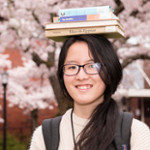 I am a student who is passionate about ethnomusicology, Middle Eastern music, and the landscape of world flutes. For my project, I will be traveling to Morocco to study Arabic and Andalusian music with local musicians in the cities of Tatuan, Marrakech, and Fez. During my study I will be focusing on developing skills and techniques, maqamat (Arabic musical modes), taqasim (improvisation), as well as theoretical understanding. Throughout this journey, I will also be participating in a variety of Sephardic Jewish pilgrimages and rituals such as the Gnawa lila, the hip hop festivals hosted by the monarchy, the hillula as a paradigm for saint veneration, and Andalusi music festivals. I hope to gain a deeper understanding of how music interacts with a diversity of religions, rituals, and cultural histories. I will be participating in the annual Arab Music Retreat when I return to the US in August.
I am a student who is passionate about ethnomusicology, Middle Eastern music, and the landscape of world flutes. For my project, I will be traveling to Morocco to study Arabic and Andalusian music with local musicians in the cities of Tatuan, Marrakech, and Fez. During my study I will be focusing on developing skills and techniques, maqamat (Arabic musical modes), taqasim (improvisation), as well as theoretical understanding. Throughout this journey, I will also be participating in a variety of Sephardic Jewish pilgrimages and rituals such as the Gnawa lila, the hip hop festivals hosted by the monarchy, the hillula as a paradigm for saint veneration, and Andalusi music festivals. I hope to gain a deeper understanding of how music interacts with a diversity of religions, rituals, and cultural histories. I will be participating in the annual Arab Music Retreat when I return to the US in August.
Emilie Kelly ‘25
The Grand Trans-American Cornhole Quest
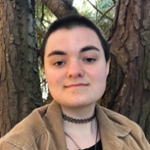
Gloria Herman ‘23
Lesbian Love Tour for the 21st Century
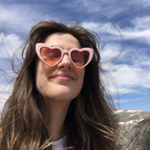 Over the course of a sixty day road trip, I will visit the remaining lesbian bars in the United States, and explore how lesbians find and create community spaces. Lesbian bars are dying rapidly: right now there are twenty-one in the continental US—from over 200 in the 1980s. Lesbian spaces exist at a unique intersection of marginalized identity. Lesbian spaces exist at an intersection of historic queerness, physicality, anonymity, and modern community. For me, lesbian spaces exist exclusively in daydreams, and are defined by my desire. As a gay twenty-one year old who's come of age and into identity in the midst of a pandemic, and the decline of lesbian bars, the experiences possible in these lesbian spaces feel fleeting. This project is important because so many lesbian bars are on the brink of closure—while these spaces are still within reach, I will participate in and document the oral history that these people and places hold, seek multi-generational community, and immerse myself in the enduring examples of the environment that I hope to revive in my community and generation.
Over the course of a sixty day road trip, I will visit the remaining lesbian bars in the United States, and explore how lesbians find and create community spaces. Lesbian bars are dying rapidly: right now there are twenty-one in the continental US—from over 200 in the 1980s. Lesbian spaces exist at a unique intersection of marginalized identity. Lesbian spaces exist at an intersection of historic queerness, physicality, anonymity, and modern community. For me, lesbian spaces exist exclusively in daydreams, and are defined by my desire. As a gay twenty-one year old who's come of age and into identity in the midst of a pandemic, and the decline of lesbian bars, the experiences possible in these lesbian spaces feel fleeting. This project is important because so many lesbian bars are on the brink of closure—while these spaces are still within reach, I will participate in and document the oral history that these people and places hold, seek multi-generational community, and immerse myself in the enduring examples of the environment that I hope to revive in my community and generation.
Safi Zenger ‘24
Knowing Our Place: Spatial Racism in New York City’s Museums and Galleries
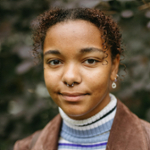 Many American museums are predominantly white spaces, with extensive pasts of racial exclusion. Art museums and galleries, in particular, hold long histories of racism in their frameworks, especially as seen through their interactions with black artists, patrons, and collectors. As a member of the black community and an active participant in the art world, I am compelled to investigate the longstanding impacts of racial exclusion on the current museum culture of New York City. Broadly, I hope to acknowledge whether or not museums are welcoming spaces, and more specifically, outline to whom museums open their doors, both literally and figuratively. My project will examine the architectural significance of a museum space, the diversity of their exhibitions, the accessibility of their collections, and the sentiments of their staff and patrons. I will critically assess racial representation in a range of museums to address the role racial identity plays in one's potential for comfort inside art spaces. Upon the completion of my research, I will compile a comprehensive pamphlet reviewing NYC’s museums and galleries. Given my desire to engage in museum work in the future, this project will enable me to investigate the spaces I intend to change, informing my career goals.
Many American museums are predominantly white spaces, with extensive pasts of racial exclusion. Art museums and galleries, in particular, hold long histories of racism in their frameworks, especially as seen through their interactions with black artists, patrons, and collectors. As a member of the black community and an active participant in the art world, I am compelled to investigate the longstanding impacts of racial exclusion on the current museum culture of New York City. Broadly, I hope to acknowledge whether or not museums are welcoming spaces, and more specifically, outline to whom museums open their doors, both literally and figuratively. My project will examine the architectural significance of a museum space, the diversity of their exhibitions, the accessibility of their collections, and the sentiments of their staff and patrons. I will critically assess racial representation in a range of museums to address the role racial identity plays in one's potential for comfort inside art spaces. Upon the completion of my research, I will compile a comprehensive pamphlet reviewing NYC’s museums and galleries. Given my desire to engage in museum work in the future, this project will enable me to investigate the spaces I intend to change, informing my career goals.
Sage Curry-Wynne ‘23
Judicial Processes Then and Now: Reed’s Judicial Board In Context
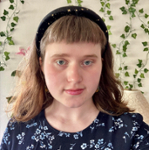 My project centers around Reed’s Judicial Board. Utilizing my background as a returning member of the Judicial Board, I seek to engage in an analysis of the history of the Board’s role in the community, as well as a comparative analysis between Reed and other colleges. Reed’s judicial process is unique in the prominent role it grants to students, as well as its consideration of the Honor Principle as a standard of conduct. Still, there is currently a lack of institutional knowledge contextualizing the history of the Judicial Board and how it varies from the processes of other institutions. Conversations about the definition of the Honor Principle and the role of the Judicial Board within the community remain ongoing, and I hope to provide knowledge which will aid community members in these discussions. My research will consist of archival research, policy analysis, and interviews with current and former Reedies, as well as students and staff involved in judicial processes at other institutions. The output of this project would be a handbook of research and a series of training slides which recontextualize honor and policy at Reed.
My project centers around Reed’s Judicial Board. Utilizing my background as a returning member of the Judicial Board, I seek to engage in an analysis of the history of the Board’s role in the community, as well as a comparative analysis between Reed and other colleges. Reed’s judicial process is unique in the prominent role it grants to students, as well as its consideration of the Honor Principle as a standard of conduct. Still, there is currently a lack of institutional knowledge contextualizing the history of the Judicial Board and how it varies from the processes of other institutions. Conversations about the definition of the Honor Principle and the role of the Judicial Board within the community remain ongoing, and I hope to provide knowledge which will aid community members in these discussions. My research will consist of archival research, policy analysis, and interviews with current and former Reedies, as well as students and staff involved in judicial processes at other institutions. The output of this project would be a handbook of research and a series of training slides which recontextualize honor and policy at Reed.
Sarvodaya Singh ‘24
Portland, Metro and the UGB: looking at Portland’s urban development through a photographic lens
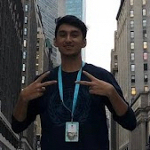 There are only three states in America that have explicit limits beyond which urban development stops: Oregon, Washington and Tennessee. In Portland, Oregon, the Urban Growth Boundary (UGB) imposed by the city’s governing body, Metro, imposes a border beyond which there is only access to farms and nature. Introduced in 1979, the Portland UGB has served as an economic barrier between the concrete fueled economic agglomeration of downtown Portland and the generationally passed down, family owned farms that are just a thirty minute drive away. I am aiming to truly understand the Urban Growth Boundary, the reasons for its continued existence, and the political, social, and cultural implications of a landmark economic decision. To do this, I will be working over a span of ten weeks to put together a visual exhibition that expresses Portland’s urban development, shows the separation between the groups of people that the development has inadvertently brought about, and determines whether explicitly curbing development has benefits that outweigh its negative externalities. A majority of my research will be expressed through photographs and data visualizations of modern day Portland compared to Portland in the 1970s, alongside a series of images of individuals on either side of the Urban growth boundary—all composed with the intention of expressing Portland’s urban-agrarian duality in the best way I know how: through the lens of my camera.
There are only three states in America that have explicit limits beyond which urban development stops: Oregon, Washington and Tennessee. In Portland, Oregon, the Urban Growth Boundary (UGB) imposed by the city’s governing body, Metro, imposes a border beyond which there is only access to farms and nature. Introduced in 1979, the Portland UGB has served as an economic barrier between the concrete fueled economic agglomeration of downtown Portland and the generationally passed down, family owned farms that are just a thirty minute drive away. I am aiming to truly understand the Urban Growth Boundary, the reasons for its continued existence, and the political, social, and cultural implications of a landmark economic decision. To do this, I will be working over a span of ten weeks to put together a visual exhibition that expresses Portland’s urban development, shows the separation between the groups of people that the development has inadvertently brought about, and determines whether explicitly curbing development has benefits that outweigh its negative externalities. A majority of my research will be expressed through photographs and data visualizations of modern day Portland compared to Portland in the 1970s, alongside a series of images of individuals on either side of the Urban growth boundary—all composed with the intention of expressing Portland’s urban-agrarian duality in the best way I know how: through the lens of my camera.